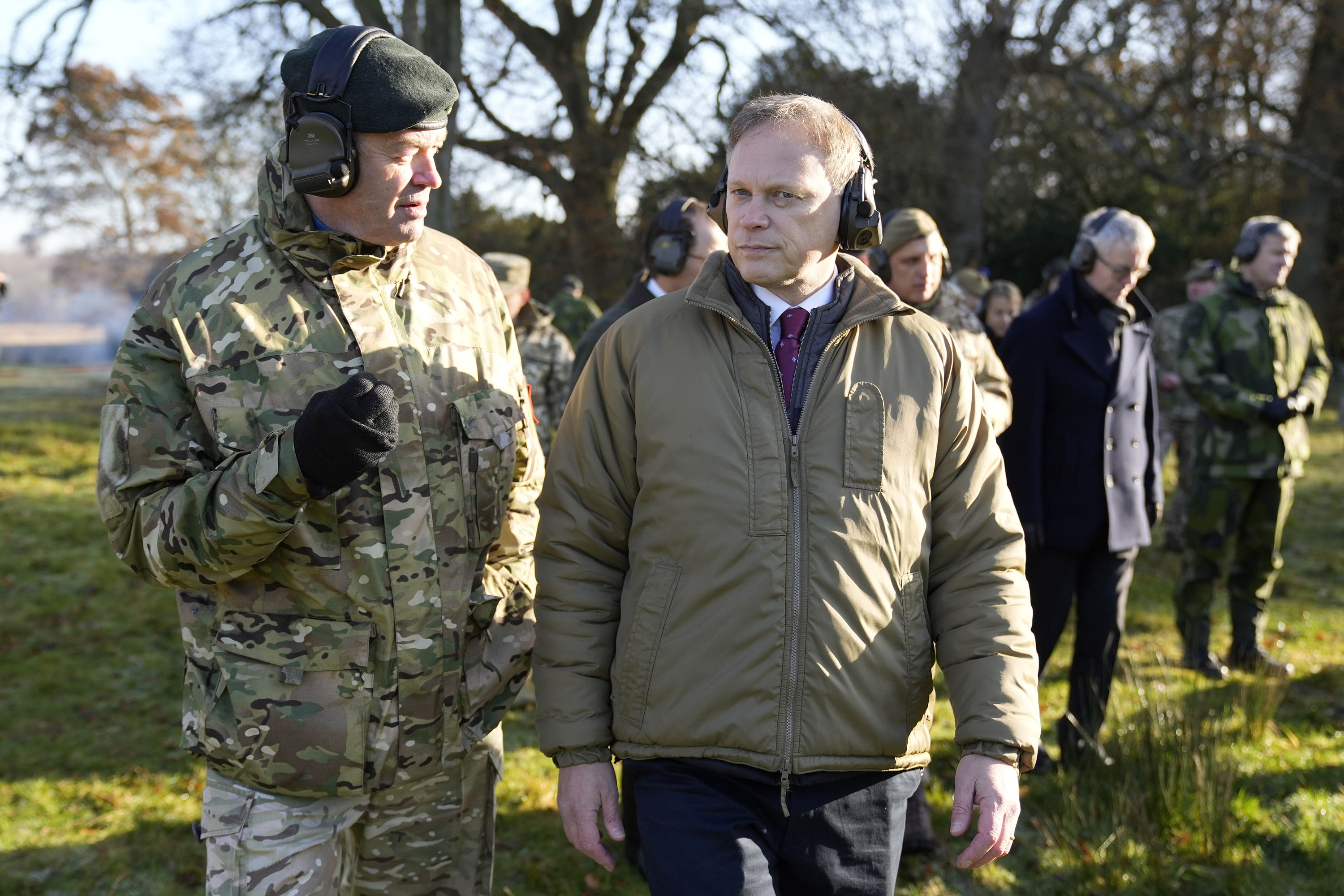Britain needs to train and equip a citizen army to prepare for war – Army chief
General Sir Patrick Sanders said bolstering Army numbers in preparation for a potential conflict needs to be a ‘whole-of-nation undertaking’.

Your support helps us to tell the story
From reproductive rights to climate change to Big Tech, The Independent is on the ground when the story is developing. Whether it's investigating the financials of Elon Musk's pro-Trump PAC or producing our latest documentary, 'The A Word', which shines a light on the American women fighting for reproductive rights, we know how important it is to parse out the facts from the messaging.
At such a critical moment in US history, we need reporters on the ground. Your donation allows us to keep sending journalists to speak to both sides of the story.
The Independent is trusted by Americans across the entire political spectrum. And unlike many other quality news outlets, we choose not to lock Americans out of our reporting and analysis with paywalls. We believe quality journalism should be available to everyone, paid for by those who can afford it.
Your support makes all the difference.Britain should “train and equip” a “citizen army” to ready the country for a potential land war, the head of the Army has said.
But General Sir Patrick Sanders, the outgoing Chief of the General Staff (CGS), said even that would be “not enough” as he pointed to allies in eastern and northern Europe “laying the foundations for national mobilisation”.
In a speech on Wednesday, the military top brass said increasing Army numbers in preparation for a potential conflict would need to be a “whole-of-nation undertaking”.
The comments, first reported by the Daily Telegraph, are being read as a warning that British men and women should be ready for a call-up to the armed forces if Nato goes to war with Russia.
We will not be immune and as the pre-war generation we must similarly prepare — and that is a whole-of-nation undertaking
It comes after Defence Secretary Grant Shapps in a speech last week said the world is “moving from a post-war to pre-war world” and the UK must ensure its “entire defence ecosystem is ready” to defend its homeland.
But Downing Street ruled out any move towards a conscription model, saying that Army service would remain voluntary.
Wednesday’s comments by Sir Patrick, made during a speech at the International Armoured Vehicles conference in west London, do not mark the first time he has pushed for greater readiness of Britain’s armed forces for conflict.
Speaking in 2022 in the months after Russian president Vladimir Putin’s invasion of Ukraine, the Army chief said “this is our 1937 moment” — a reference to preparations made for the start of the Second World War — and that the British Army should be at “high readiness”.
In his speech on Wednesday, Sir Patrick said Britain could not rely on its navy and air power, arguing “we must be able to credibly fight and win wars on land”.
He said: “We need an Army designed to expand rapidly to enable the first echelon, resource the second echelon and train and equip the citizen army that must follow.
“Within the next three years, it must be credible to talk of a British Army of 120,000, folding in our reserve and strategic reserve. But this is not enough.
“Our friends in eastern and northern Europe, who feel the proximity of the Russian threat more acutely, are already acting prudently, laying the foundations for national mobilisation.
“As the chairman of the Nato military committee warned just last week, and as the Swedish government has done, preparing Sweden for entry to Nato, taking preparatory steps to enable placing our societies on a war footing when needed are now not merely desirable but essential.
“We will not be immune and as the pre-war generation we must similarly prepare — and that is a whole-of-nation undertaking.
“Ukraine brutally illustrates that regular armies start wars; citizen armies win them.”
He also made a pitch for more backing for the Army, saying those serving “rightly want the equipment that enables them to deliver lethal capability”.
Sir Patrick has been a vocal critic of cuts to troop numbers and military spending.
He will be replaced as CGS in June by General Sir Roly Walker, an announcement that followed reports he was being forced out in response to his outspoken comments.
Chief of the Defence Staff, Admiral Sir Tony Radakin, denied the claim when asked by MPs about the reports in July.
The Prime Minister’s official spokesman, asked about whether Rishi Sunak could rule out conscription in future circumstances, said: “There is no suggestion of that.
“The Government has no intention to follow through with that.
“The British military has a proud tradition of being a voluntary force. There are no plans to change that.”
The No 10 official said “hypothetical scenarios” about potential future conflicts were “not helpful”.
Sir Patrick has not been alone in warning against allowing the Army to be shrunk further.
Last week, a former chief of the general staff of the British Army said the UK risks a repeat of the 1930s unless more is invested in its armed forces.
General Lord Dannatt hit out at the shrinking size of the army, which he said has fallen from 102,000 in 2006 to 74,000 today and is still “falling fast”.
He drew parallels with the 1930s when the “woeful” state of the UK’s armed forces failed to deter Adolf Hitler, saying there is “a serious danger of history repeating itself”.
Mr Shapps has insisted the size of the Army will not dip below 73,000 under the Conservatives.
He told Sky News on Sunday: “It’s not projected to go down to 50,000.
“It is actually, specifically, to 73,000 plus the reserves.”